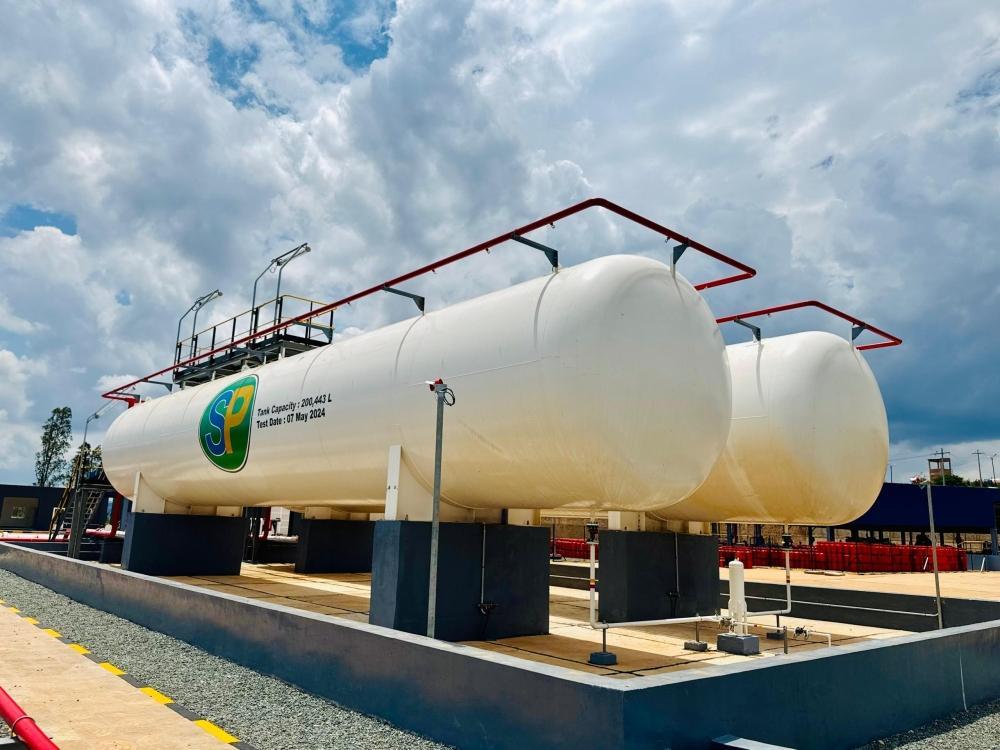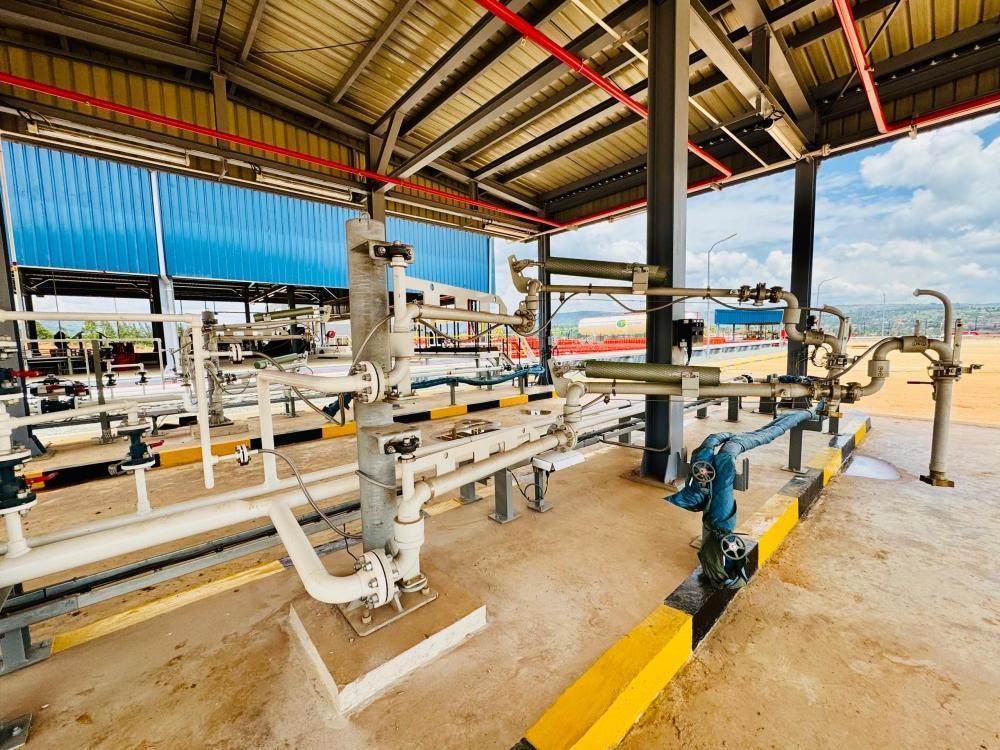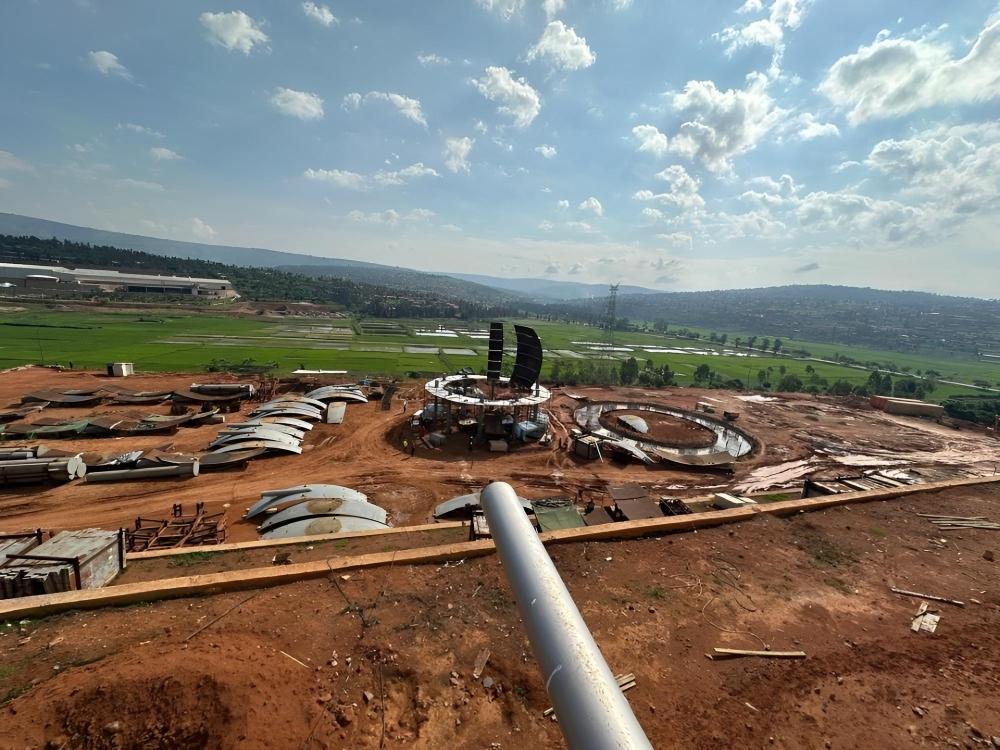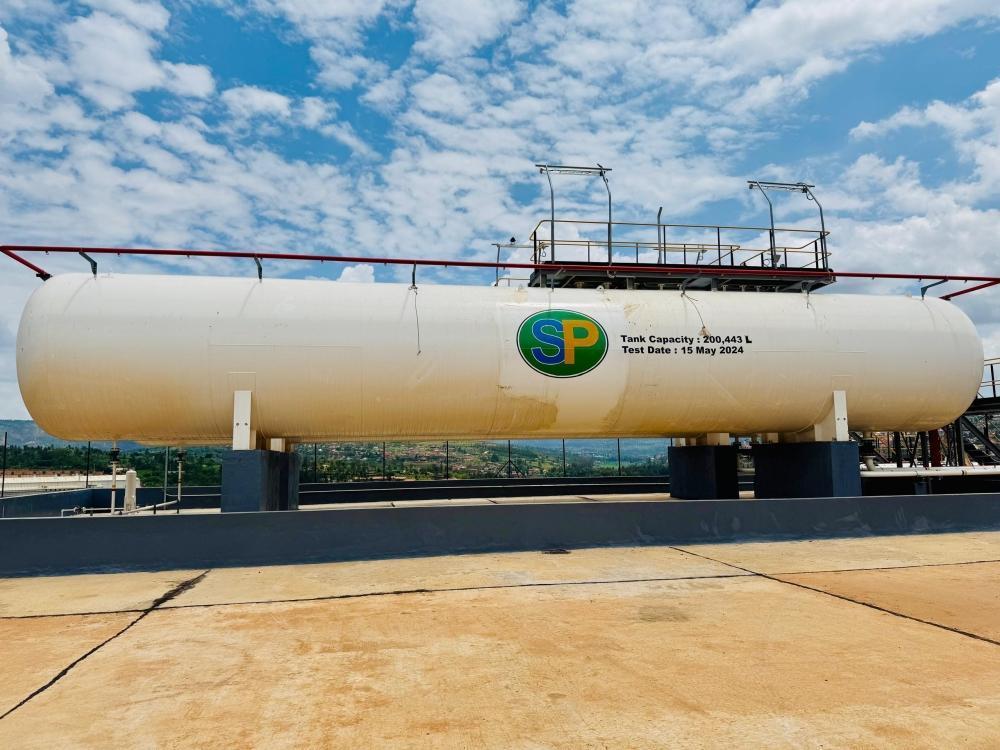Africa-Press – Rwanda. A liquefied petroleum gas (LPG) storage depot worth $44 million (over Rwf60 billion) being set up in Rusororo Sector, Gasabo District, is set to be completed and commissioned in 2026, according to Société Pétrolière (SP), the company leading the project.
SP Managing Director, Claudien Habimana, told The New Times that although SP is financing the project, the facility will serve the broader public, including other energy entities and the government, which will be able to store strategic reserves at the site for a fee.
He explained that the depot consists of two main sections: a top platform (having daily use LPG tanks known as bullets), which has already been completed, and a bottom platform, where the long-term LPG storage spheres are being built.
Construction works are at an advanced stage, with the installation of the main LPG storage spheres—large tank-like structures currently underway.
A view of the offloading and loading area at the cooking gas depot being developed in Gasabo, Kigali, as of November 3. Photo by Emmanuel Ntirenganya.
When fully operational, the depot will have a total capacity of approximately 9,000 tonnes of LPG, up from the initial plan of about 8,500 tonnes, Habimana said.
This storage level can supply the country’s current cooking gas demand for about two months, he observed. All equipment required for completion has already arrived in Rwanda and is available at the project site, while the government is constructing access roads to the facility.
“We plan to commission the facility in July next year,” Habimana said, adding that the total investment increased from an initial estimate of Rwf38 billion to $44 million due to higher equipment costs and project modifications.
He indicated that the feasibility study for the project was conducted before the Covid-19 pandemic, but the global rise in steel prices and the addition of two daily-use LPG tanks—each with a capacity of over 200,000 litres (about 100 tonnes) significantly increased the budget.
Meanwhile, Habimana said daily tanks included in the project are expected to become operational in January 2026, marking what he described as a temporary commissioning phase.
Habimana noted that the depot will strengthen Rwanda’s energy security by ensuring supply continuity in case of disruptions in imports.
Three large spherical LPG storage tanks are being installed at the facility, which is expected to be commissioned in 2026. Courtesy photo
“Once complete, the facility will hold up to two months of supply, considering that Rwanda’s current consumption is about 5,000 tonnes of LPG per month,” he said.
The New Times understands that the depot’s capacity could be expanded in line with future growth in national LPG demand.
In 2023, the Ministry of Infrastructure stated that efforts to regulate cooking gas prices had been constrained by limited storage and supply capacity.
This situation would force price reviews roughly every two weeks due to frequent imports and related cost fluctuations from Tanzania and Kenya.
The ministry observed that the new depot in Rusororo would help address these challenges, indicating that with larger storage capacity, LPG tariffs could be stabilised and adjusted less frequently—similar to fuel pricing mechanisms for petrol and diesel.
A view of a daily tank at the cooking gas depot under construction in Rusororo, Gasabo District, Kigali, on November 3. Photo by Emmanuel Ntirenganya
Currently, all cooking gas used in Rwanda is imported. Meanwhile, Rwanda is exploring the use of methane gas from Lake Kivu for domestic energy needs. Plans are underway to convert this resource into liquefied natural gas (LNG) for cooking, with the use of the gas for that purpose expected to begin in 2027.
According to the National Institute of Statistics of Rwanda (NISR), about 75 per cent of households in Rwanda rely on firewood as their main cooking fuel, 18.8 per cent of households use charcoal and 5.4 per cent use gas.
For More News And Analysis About Rwanda Follow Africa-Press









